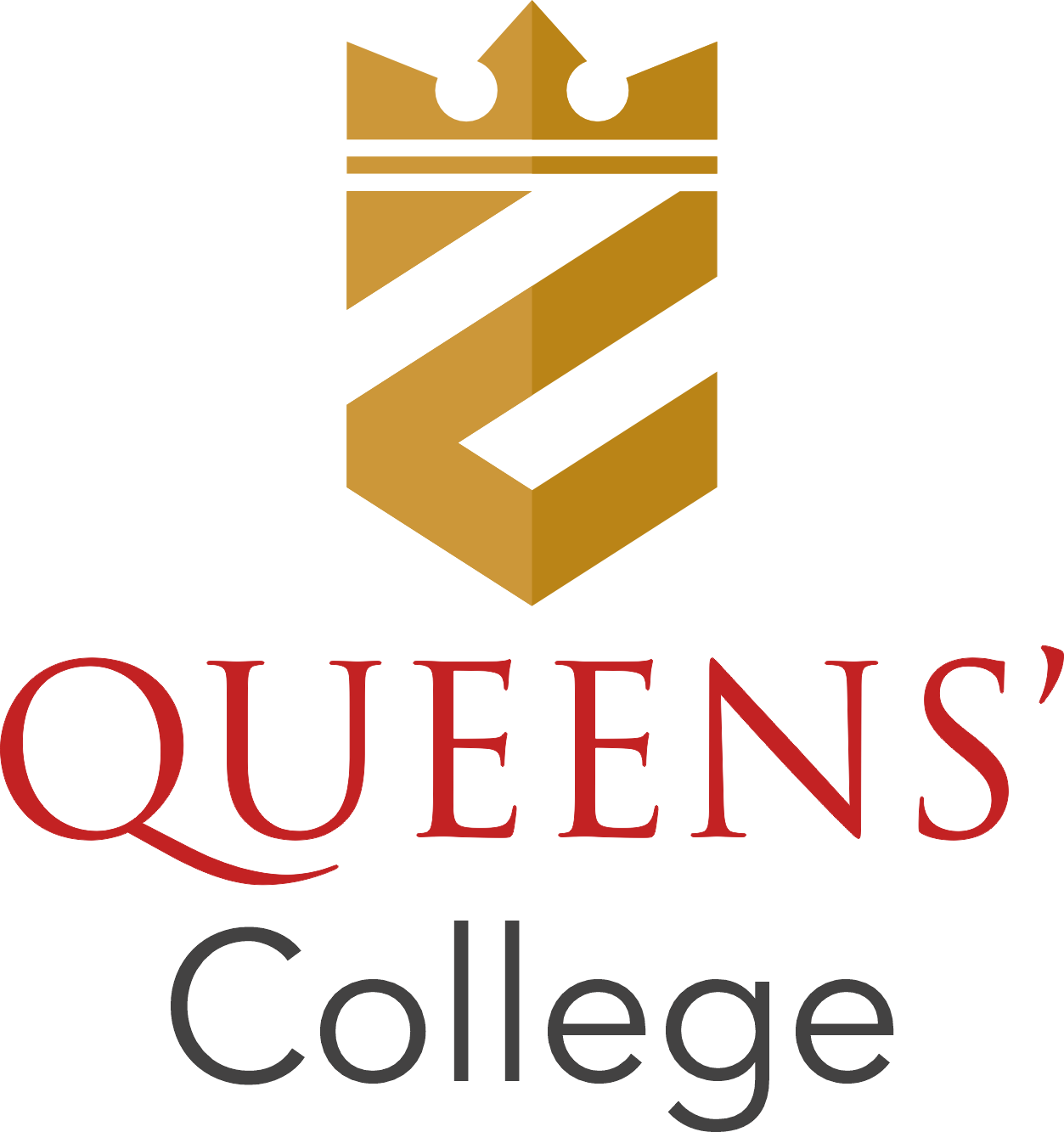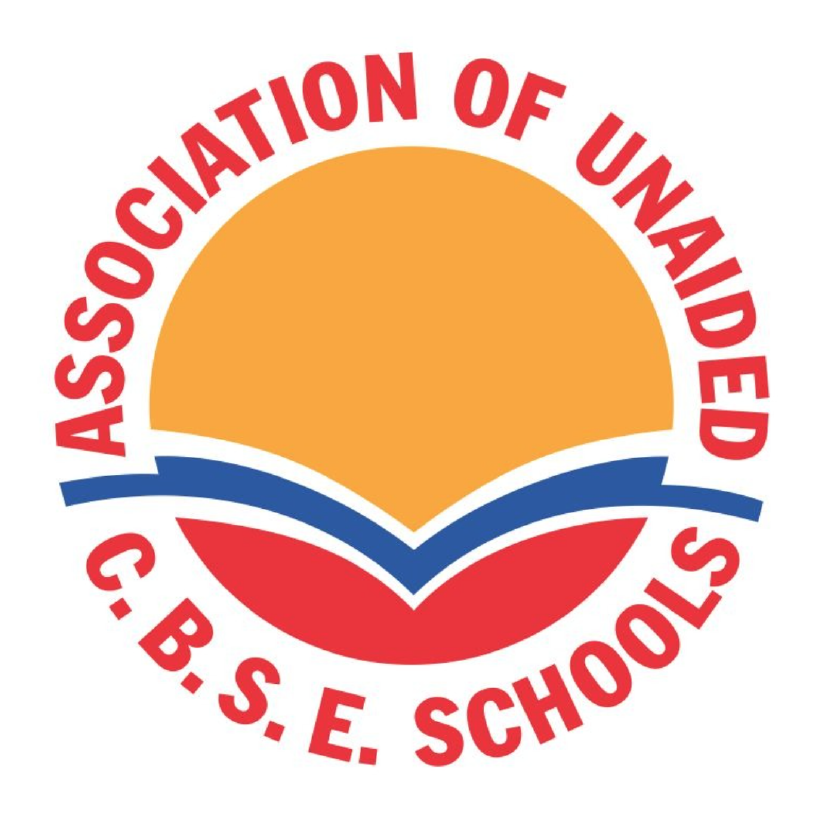Code of Conduct
Admission Process
Fees Structure
School Timing
Code of Conduct
FAQ
Fees Structure in 2025 - 26
CODE OF CONDUCT
1. They conduct themselves in a dignified and responsible manner.
2. They should be honest and not resort to any unfair means.
3. They take pride in wearing the school uniform. Students must come to school in uniform only. This rule applies even when they come to school for any purpose other than attending classes or even after school hours. Students who are not in proper uniform will not be allowed to enter their class rooms.
4. Students should be habitually clean and always neatly dressed.
5. They maintain personal hygiene.
6. They ought to be environment conscious.
7. They respect the Constitution, the National Flag, the National Anthem and any other national code of conduct.
8. They maintain cleanliness of surroundings.
9. They take care of school property.
10. They should not indulge in bullying/ bunking classes / open defiance or rude behaviour.
11. They take care of disadvantaged.
12. They take part in co-curricular activities for their holistic growth.
13. Students must bring their tiffin along with them. Tiffin boxes brought thereafter will not be accepted by the guards.
14. No student is allowed to drive a motorized vehicle during, before or after school hours. Since he/she is not old enough to have a license.
15. They grow up as aware and concerned citizens.
16. The school expects that the student will use appropriate language, adhere to morals and ethics, complete all homework, and follow all instructions regarding behaviour. If the student’s behavior or any action is found to be harmful to the school’s environment, they may be removed from the school rolls without any written or oral explanation. The management’s decision in this matter will be final.
17. In the morning, the warning bell will ring 5 minutes before the start of assembly. It is a signal for all students to go to their respective class rooms. This should be done promptly and in silence. As soon as they are in their classes, students must get ready for the assembly.
18. Change of class rooms between periods should be done in silence and in an orderly manner.
19. Boys should get their hair cut at regular intervals. Girls with long hair must tie it up neatly into plaits.
20. No shouting or whistling is allowed in or around the school building. Running in corridors is strictly prohibited.
21. It is strictly forbidden to throw any object at any one.
22. Students are forbidden to bring objectionable materials and literature / sharp objects or valuables to the school.
23. No child should damage / spoil the school property or the property of other children. Any such damage shall be made good by the parents.
24. Any damage done will be made good by the student concerned, together with a heavy fine imposed on him / her for such an offence. Any one who notices something damaged should report the matter even if he or she does not know who has done it.
25. No book, (other than textbooks or library books) magazine or paper may be brought to the school without the Class teacher’s permission.
26. Lending or borrowing of money or other articles is not permitted.
27. Our students should observe and follow polite manners wherever they go. They should always remember that the school is judged by their conduct. They should greet their teachers whenever and wherever they meet them.
28. The school reserves for itself the right to terminate the students with unsatisfactory progress in studies or whose conduct is a bad precept for others.
29. Exploding crackers or splashing colours during Diwali / Holi or any other occasion in the school premises or school buses is strictly forbidden. Non-compliance of these instructions can result in expulsion from the school.
30. Students should attend festivals and functions celebrated in the school.
31. Students are not allowed to carry mobile phones or any electronic gadget to the school. If found in school, these items will be confiscated and not returned.
ABSENCE FROM SCHOOL
1. Class Teacher should be informed through almanac / email if the child is absent. You must also contact the class teacher to know the work your child has missed.
2. A student returning to school after extended illness from an infectious or contagious disease should produce a doctor’s fitness certificate permitting him to do so. Students suffering from the following diseases must observe the prescribed period of quarantine before returning to school.
Chicken Pox – Till the scabs fall completely.
Cholera – Till the child has completely recovered.
Measles – Two weeks after the rash disappears
Mumps – 4 weeks post swelling subsides
Whooping Cough – Six weeks
Jaundice – Six weeks
Conjunctivitis – One week
Novel Coronavirus – Negative PCR Report to be given to the school authority
3. Repeated absence without leave or unexplained absence for more than three consecutive days renders the student liable to have his name struck off the rolls. Re-admission may be granted only after payment of a fresh admission fee.
4. All students are expected to attend school on the opening day after the vacations.
5. It is compulsory for the students to complete 75% of attendance in each term to make them eligible to take the Assessment/Examination.
LATE ARRIVAL IN SCHOOL
1. Students should report to school on time.
2. Students arriving late will not be allowed to enter the school.
3. Necessary disciplinary action will be taken against habitual late comers.
ADMISSION/WITHDRAWAL
Admission:
1. A child seeking admission to the school must first get his or her name registered after getting the prospectus from the school.
2. Admission to school is considered on the basis of age, merit and vacancy.
3. The school reserves the right to grant admission to a student.
4. If at a later date, it is found that the information provided to the school is fake or incorrect, the admission will be cancelled.
Withdrawal:
1. One clear calendar month’s notice in writing or a month’s fee in lieu of notice must be given before the pupil is withdrawn.
2. Those who leave school during the session must in all cases pay the fees for the month last attended.
3. Transfer Certificate is not issued until all the dues of the school are settled
4. Students can be asked to leave the school on the following grounds:
- Disciplinary
- Unsatisfactory progress in studies.
- Detention / repeated detentions in a class.
5. The school espouses politeness in talk and behaviour as a special aspect of education. Any rude / impolite behaviour towards staff members in / outside the school by any student / parent / guardian shall be sufficient reason for the immediate expulsion of the student from the school rolls.
- Scope
- Introduction
- Conflicts of Interest
- Code of Conduct
- Failure to comply
- Disciplinary action
-
Procedure for Reporting
non-compliant conduct - Procedure of Imposing Penalties
This code applies to all the teaching, non-teaching, support and contractual staff.
The school function with the ideology that children must be given an environment that makes them want to come to school every day. They follow the principle of promoting individuality through value-based education which promotes a global outlook yet retains intrinsic Indian cultural traditions. The school also lay a great emphasis on inclusivity. Since a school is not made by brick and mortar but mortal human beings, it is expected out of each staff member, in any school, to uphold these principles in their code of conduct. This Code of Conduct specifies and helps the continued implementation of the Principles by establishing certain nonnegotiable minimum standards of behavior in key areas. Since teachers are the ones who spend maximum time with the children, this Code is also intended to endorse the teachers’ acceptance of responsibility as custodian of children in their care, specifically during the time the children are assigned to them, as they are the first line of contact with children in the classroom. They must be specifically made aware of do’s and don’ts in handling the children and agree to abide by these. The nature of this Code is not meant to cover all possible situations that may occur. It is designed to provide a frame of reference against any activities that can be measured. Employees should seek guidance when they are in doubt about the proper course of action in a given situation, as it is the ultimate responsibility of each employee to “do the right thing”, a responsibility that cannot be delegated.
The Code of Conduct document will be re-signed once a year on the 1st working day of new calendar year by all school staff to remind them of their responsibilities. All new entrants will sign the code of conduct upon joining, and thereafter a fresh copy on the annual date along with all school staff.
Employees should always be guided by the following basic principles:
- avoid any conduct that could damage or risk school or its reputation;
- act legally and honestly;
- put the School’s interests ahead of personal or other interests
The school shall always act in its best interests (which is synonymous with the best interest of the students). A Conflict of Interest occurs when personal interests of an employee or the interests of a third party compete with the interests of the school. In such a situation, it can be difficult for the employee to act fully in the best interests of the school. Employees shall avoid Conflicts of Interest whenever possible. If a Conflict of Interest situation has occurred or if an employee faces a situation that may involve or lead to a Conflict of Interest, the employee shall disclose it to the Principals and /or the HR to resolve the situation in a fair and transparent manner.
In any situation, the interest of the school shall prevail over the interest of the employees and this shall also serve as a yardstick for the school to take the right decision in a given situation.
Teaching staff related
Classroom environment
An educator is expected to be a facilitator, who brings out the already existing potential in a child, teaches children to ‘think’, stimulates their young minds to think beyond the obvious; and enables them to learn to value strategic, ethical and moral reasoning, perseverance and creativity. He / she is expected to internalize the core values of the school and reinforce them in class, while teaching as well as in other interactions with children, to whom he/she reaches out academically and individually. Any act to the contrary shall be construed as misconduct and liable to disciplinary action.
An educator shall never resort to any behavior that tarnishes / scars the child’s psychology and makes him/ her fearful of coming to school.
An educator shall also ensure that he / she walks the talk and sets an example for the school values for children to emulate them. All educators shall exhibit sensitivity and practice inclusivity in the classroom. All educators shall use and encourage children to follow the Grace and Courtesy rules: say please and thank-you and general manners.
All educators shall plan properly for lessons and follow the school curriculum.
All educators should ensure that children should never be left unattended – within or outside classroom and should not make sustained neglect in correcting class work or home work.
Discipline and Classroom management
An educator shall never resort to corporal punishment (inside or outside classroom) to instill discipline amongst students. Use of derogatory remarks for children or subjecting them to public humiliation, intimidating children or man handling them is a completely non acceptable behavior.
Even if a child needs to be reprimanded for a wrong doing, it should be done on one to one basis and by ensuring that the child does not feel humiliated, just realizes his/ her mistake. When a child does even the smallest of appreciable things, it should b e a made a point to applaud him / her in public. We believe in “praising in public, reprimanding in private”. Classroom management should be done with the help of rules and not coercion.
All staff related
Sexual or any other form of Harassment / Child Abuse
The safety of children is of utmost importance. Any form of harassment, including sexual harassment and child abuse – whether physical or mental, is a heinous action and shall be subject to the highest degree of disciplinary action within the school. All employees in the school shall work towards compliance of the child protection policy and shall not indulge in any act of harassment. Any act of sexual harassment by any employee, shall not only entail disciplinary sanctions but also result in criminal charges.
Behavior / Communication with external stake holders and parents
All staff should ensure that any communication with the clients, parents, third parties is appropriate, including communication via social networking sites, phones, emails, text messages etc. They should also make sure that the behavior / communication with the external stake holders at work or outside does not cause embarrassment to the school or reflect negatively on the school in a way that would bring its reputation into disrepute or cause a loss of public confidence.
Communication w.r.t. small but important aspects like a child forgetting to bring tiffin, not eating properly etc. should be made to the parent through a note in the diary. In case a child falls sick / gets injured at school, the teacher needs to call up the parents and inform after ensuring the regular first aid. No medicine to be given to the child without parents’ written consent.
Non-discrimination
No staff shall ever discriminate amongst students or any other member of the staff on any pretext. Any act of discrimination, especially amongst children, can scar them for a lifetime and hence this shall be completely unacceptable. Educators should therefore provide equal opportunities to all the kids, regardless of their age, sex, cast, disability, race or religion. Utmost care shall be taken by the Educators to ensure that there is no discrimination, even inadvertently against SEN, EWS students and should also inculcate these values amongst other students.
Integrity
Employees must never, directly or through intermediaries, accept any personal or improper financial or other advantage for any preferential treatment to a child / parent. Moreover, employees must refrain from any activity or behavior that could give rise to the appearance or suspicion of such conduct or the attempt thereof. Employees should be aware that the offering or giving of improper benefits in order to influence the decision of the recipient may not only entail disciplinary sanctions but also result in criminal charges. Improper benefits may consist of anything of value for the recipient, in cash or in kind. Employees shall not accept gifts, meals, or any form of entertainment. No employee shall offer to or accept from any third party gifts taking the form of any of the following, whatever the value involved:
- money
- loans
- kickbacks
- similar monetary advantages
Employees shall also not ask for or accept, except with the previous sanction of the employer, any contribution or otherwise associate himself with the raising of funds of any kind or make any collection whether in cash or in kind, in pursuance of any object whatsoever, except subscription from the members of any association of teachers.
Employees shall also ensure that they commit only what they can deliver and work hard to meet all their commitments in time.
Employee shall utilize the school resources only for official purpose and not for their personal advantage. They shall not resort to embezzlement of funds or misappropriation of school property or theft or fraud.
Confidential information consists of any information that is not or not yet public information. This can include aspects like student assessment reports, student profiles, details of SEN children etc. Employees shall keep confidentiality at all times (any issues – including personal – concerning children, their parents, staff and students) should not be discussed outside the school.
Employees shall provide correct information to the school regarding the educational qualifications, experience, references. They shall not hide or falsify facts known to them.
Educators shall not take private tuitions without the permission of school authorities. They shall also not prepare or publish any book or books commonly known as keys or assist whether directly or indirectly in their publication or as a selling agent or canvasser for any publishing firm or trader.
xxii)
Conviction by a court of law for criminal offence shall be treated as grave and so shall be possession of weapons, explosives, and other objectionable materials within school premises.
Whistleblowing
The Code of Conduct cannot be institutionalized if the onus lies only with the Management and Principal. It is the collective duty of the entire staff to ensure the implementation of this Code of Conduct. It thus becomes the primary duty of each staff member to raise a flag if they come across any violation of the Code, at the very first incident. Any employee, who is found to be concealing the truth / covering up for another colleague who has violated the Code, shall be subject to more severe course of disciplinary action compared to the guilty.
Sensitivity towards the environment
All staff should strive to use the recycled items to save the resources and also recycle resources like paper to the maximum possible extent.
All staff members shall ensure that electricity and water are properly utilized. The last exiting person from classrooms, staffrooms, meeting rooms or any and other rooms, should ensure that all lights and fans are switched off if.
Respecting School Property and Colleagues
Employees shall not sabotage school property or records.
They shall also not resort to willful insubordination or disobedience, whether alone or in combination with other to any lawful and reasonable order of a superior. The employee should make sure that they respect all co-workers especially support staff as well and address them as bhaiyas and didis. Employees shall not resort to use of abusive language, quarrelsome, riotous behavior and disrespectful behavior, rumour mongering and character assassination.
National spirit
Employees shall not indulge in any act that shall lead to conviction by a court of law for criminal offence. Similarly, possession of weapons, explosives, and other objectionable materials within school premises. Employees should not propagate communal or sectarian outlook or incite or allow any student to indulge in communal or sectarian activity through teaching lessons or otherwise.
Professionalism
All staff members shall work together enthusiastically towards the school’s common goal. All staff members shall work collaboratively and communicate with each other in a positive manner. All employees shall ensure that they exhibit punctuality in all walks of professional life. Staff shall also strive to stay motivated and speak up in case of dissatisfaction, thereby enabling an open, warm, friendly and positive environment within the school. Staff shall also handle problems proactively rather than showing a reactive approach. All staff shall avoid making others wait for meetings, when a prior appointment is fixed.
It is each employee’s responsibility to ensure full compliance with all provisions of this Code and to seek guidance where necessary from their Principal, or from the HR. To “do the right thing” and to ensure the highest standards of integrity is each
employee’s personal responsibility that cannot be delegated.
When in doubt, employees should always be guided by the basic principles stated in the introduction to this Code. Any failure to comply with this Code may result in disciplinary action, including the possibility of dismissal and, if warranted, legal proceedings or criminal sanctions.
The following actions may be undertaken by the school in case of deviations from the Code
Minor penalties
- Issuing a memo
- Suspension from work
- Withholding of increments of pay
- Withholding of promotion
- Recovery of whole or part of the loss caused by him/her to the establishment
Major penalty
Termination from the service
- Any issue, should be brought to the notice of the Principal, by the witness staff
- The Principal shall ask for written explanation from the concerned employee and share the same, along with her comments, with the management (in most cases the HR, Director / CEO and any other reporting authority).
- Based on the category of the misconduct and after studying the explanation by the concerned employee, the appropriate action shall be decided by the management (whether the employee has to be given a written warning or terminated).
- Procedure of Imposing Minor Penalty
An employee shall be called by the Principal / HR and informed about the action being taken after putting things in records. The employee will be given an opportunity to make any representation against the proposed action.
- Procedure of Imposing Major Penalty
- An inquiry shall be held as per the process outlined below:
- The Principal shall frame definite charges on the basis of the allegation on which the inquiry is proposed to be held and a copy of the charges together with the statement of the allegations on which they are based shall be furnished to employee and he/she shall be required to submit a written statement of his / her defense within 2 weeks and also to state whether he/she desires to be heard in person;
- On receiving the written statement of defence or otherwise, the Principal may himself / herself make inquiry into the charges as are not admitted or if he / she considers it necessary to do so, appoint an inquiry officer for the purpose;
- At the conclusion of the inquiry, the inquiry officer shall prepare a report of the inquiry recording his / her findings on each of the charges together with the reasons thereof;
- The Principal shall consider the report of the inquiry and record its findings on each charge and if the Principal is of opinion that any of the major penalties should be imposed he / she shall:
- furnish to the employee a copy of the report of the enquiry officer, where an inquiry has been made by such officer;
- give him/her notice in writing stating the action proposed to be taken in regard to him/her and calling upon him/her to submit within the specified time, not exceeding two weeks, such representation as he/she may wish to make against the proposed action,
- on receipt of the representation if any, made by the employee, the Principal shall determine what penalty, if any should be imposed on the employee and communicate his / her findings and decision to the Director for his / her approval;
- The Principal shall furnish to the employee all relevant records of the case including the statement of allegations, charges framed against the employee, representation made by the employee, a copy of the inquiry report, where such inquiry was made and the
2) No action with regard to the imposition of a major penalty shall be made by the Principal without the approval of the Director.
* The following shall not amount to a penalty within the meaning of this document:
- Retirement of the employee in accordance with the provisions relating to superannuation, retirement;
- Replacement of a teacher who has not qualified on the date of his/her appointment by a qualified one;
- Discharge of an employee appointed on a short-term officiating vacancy caused by the grant of leave suspension or the like.
Scope
This code applies to all the teaching, non-teaching, support and contractual staff.
Introduction
The school function with the ideology that children must be given an environment that makes them want to come to school every day. They follow the principle of promoting individuality through value-based education which promotes a global outlook yet retains intrinsic Indian cultural traditions. The school also lay a great emphasis on inclusivity. Since a school is not made by brick and mortar but mortal human beings, it is expected out of each staff member, in any school, to uphold these principles in their code of conduct. This Code of Conduct specifies and helps the continued implementation of the Principles by establishing certain nonnegotiable minimum standards of behavior in key areas. Since teachers are the ones who spend maximum time with the children, this Code is also intended to endorse the teachers’ acceptance of responsibility as custodian of children in their care, specifically during the time the children are assigned to them, as they are the first line of contact with children in the classroom. They must be specifically made aware of do’s and don’ts in handling the children and agree to abide by these. The nature of this Code is not meant to cover all possible situations that may occur. It is designed to provide a frame of reference against any activities that can be measured. Employees should seek guidance when they are in doubt about the proper course of action in a given situation, as it is the ultimate responsibility of each employee to “do the right thing”, a responsibility that cannot be delegated.
The Code of Conduct document will be re-signed once a year on the 1st working day of new calendar year by all school staff to remind them of their responsibilities. All new entrants will sign the code of conduct upon joining, and thereafter a fresh copy on the annual date along with all school staff.
Employees should always be guided by the following basic principles:
- avoid any conduct that could damage or risk school or its reputation;
- act legally and honestly;
- put the School’s interests ahead of personal or other interests
Conflicts of Interest
The school shall always act in its best interests (which is synonymous with the best interest of the students). A Conflict of Interest occurs when personal interests of an employee or the interests of a third party compete with the interests of the school. In such a situation, it can be difficult for the employee to act fully in the best interests of the school. Employees shall avoid Conflicts of Interest whenever possible. If a Conflict of Interest situation has occurred or if an employee faces a situation that may involve or lead to a Conflict of Interest, the employee shall disclose it to the Principals and /or the HR to resolve the situation in a fair and transparent manner.
In any situation, the interest of the school shall prevail over the interest of the employees and this shall also serve as a yardstick for the school to take the right decision in a given situation.
Code of Conduct
Teaching staff related
Classroom environment
An educator is expected to be a facilitator, who brings out the already existing potential in a child, teaches children to ‘think’, stimulates their young minds to think beyond the obvious; and enables them to learn to value strategic, ethical and moral reasoning, perseverance and creativity. He / she is expected to internalize the core values of the school and reinforce them in class, while teaching as well as in other interactions with children, to whom he/she reaches out academically and individually. Any act to the contrary shall be construed as misconduct and liable to disciplinary action.
An educator shall never resort to any behavior that tarnishes / scars the child’s psychology and makes him/ her fearful of coming to school.
An educator shall also ensure that he / she walks the talk and sets an example for the school values for children to emulate them. All educators shall exhibit sensitivity and practice inclusivity in the classroom. All educators shall use and encourage children to follow the Grace and Courtesy rules: say please and thank-you and general manners.
All educators shall plan properly for lessons and follow the school curriculum.
All educators should ensure that children should never be left unattended – within or outside classroom and should not make sustained neglect in correcting class work or home work.
Discipline and Classroom management
An educator shall never resort to corporal punishment (inside or outside classroom) to instill discipline amongst students. Use of derogatory remarks for children or subjecting them to public humiliation, intimidating children or man handling them is a completely non acceptable behavior.
Even if a child needs to be reprimanded for a wrong doing, it should be done on one to one basis and by ensuring that the child does not feel humiliated, just realizes his/ her mistake. When a child does even the smallest of appreciable things, it should b e a made a point to applaud him / her in public. We believe in “praising in public, reprimanding in private”. Classroom management should be done with the help of rules and not coercion.
All staff related
Sexual or any other form of Harassment / Child Abuse
The safety of children is of utmost importance. Any form of harassment, including sexual harassment and child abuse – whether physical or mental, is a heinous action and shall be subject to the highest degree of disciplinary action within the school. All employees in the school shall work towards compliance of the child protection policy and shall not indulge in any act of harassment. Any act of sexual harassment by any employee, shall not only entail disciplinary sanctions but also result in criminal charges.
Behavior / Communication with external stake holders and parents
All staff should ensure that any communication with the clients, parents, third parties is appropriate, including communication via social networking sites, phones, emails, text messages etc. They should also make sure that the behavior / communication with the external stake holders at work or outside does not cause embarrassment to the school or reflect negatively on the school in a way that would bring its reputation into disrepute or cause a loss of public confidence.
Communication w.r.t. small but important aspects like a child forgetting to bring tiffin, not eating properly etc. should be made to the parent through a note in the diary. In case a child falls sick / gets injured at school, the teacher needs to call up the parents and inform after ensuring the regular first aid. No medicine to be given to the child without parents’ written consent.
Non-discrimination
No staff shall ever discriminate amongst students or any other member of the staff on any pretext. Any act of discrimination, especially amongst children, can scar them for a lifetime and hence this shall be completely unacceptable. Educators should therefore provide equal opportunities to all the kids, regardless of their age, sex, cast, disability, race or religion. Utmost care shall be taken by the Educators to ensure that there is no discrimination, even inadvertently against SEN, EWS students and should also inculcate these values amongst other students.
Integrity
Employees must never, directly or through intermediaries, accept any personal or improper financial or other advantage for any preferential treatment to a child / parent. Moreover, employees must refrain from any activity or behavior that could give rise to the appearance or suspicion of such conduct or the attempt thereof. Employees should be aware that the offering or giving of improper benefits in order to influence the decision of the recipient may not only entail disciplinary sanctions but also result in criminal charges. Improper benefits may consist of anything of value for the recipient, in cash or in kind. Employees shall not accept gifts, meals, or any form of entertainment. No employee shall offer to or accept from any third party gifts taking the form of any of the following, whatever the value involved:
- money
- loans
- kickbacks
- similar monetary advantages
Employees shall also not ask for or accept, except with the previous sanction of the employer, any contribution or otherwise associate himself with the raising of funds of any kind or make any collection whether in cash or in kind, in pursuance of any object whatsoever, except subscription from the members of any association of teachers.
Employees shall also ensure that they commit only what they can deliver and work hard to meet all their commitments in time.
Employee shall utilize the school resources only for official purpose and not for their personal advantage. They shall not resort to embezzlement of funds or misappropriation of school property or theft or fraud.
Confidential information consists of any information that is not or not yet public information. This can include aspects like student assessment reports, student profiles, details of SEN children etc. Employees shall keep confidentiality at all times (any issues – including personal – concerning children, their parents, staff and students) should not be discussed outside the school.
Employees shall provide correct information to the school regarding the educational qualifications, experience, references. They shall not hide or falsify facts known to them.
Educators shall not take private tuitions without the permission of school authorities. They shall also not prepare or publish any book or books commonly known as keys or assist whether directly or indirectly in their publication or as a selling agent or canvasser for any publishing firm or trader.
xxii)
Conviction by a court of law for criminal offence shall be treated as grave and so shall be possession of weapons, explosives, and other objectionable materials within school premises.
Whistleblowing
The Code of Conduct cannot be institutionalized if the onus lies only with the Management and Principal. It is the collective duty of the entire staff to ensure the implementation of this Code of Conduct. It thus becomes the primary duty of each staff member to raise a flag if they come across any violation of the Code, at the very first incident. Any employee, who is found to be concealing the truth / covering up for another colleague who has violated the Code, shall be subject to more severe course of disciplinary action compared to the guilty.
Sensitivity towards the environment
All staff should strive to use the recycled items to save the resources and also recycle resources like paper to the maximum possible extent.
All staff members shall ensure that electricity and water are properly utilized. The last exiting person from classrooms, staffrooms, meeting rooms or any and other rooms, should ensure that all lights and fans are switched off if.
Respecting School Property and Colleagues
Employees shall not sabotage school property or records.
They shall also not resort to willful insubordination or disobedience, whether alone or in combination with other to any lawful and reasonable order of a superior. The employee should make sure that they respect all co-workers especially support staff as well and address them as bhaiyas and didis. Employees shall not resort to use of abusive language, quarrelsome, riotous behavior and disrespectful behavior, rumour mongering and character assassination.
National spirit
Employees shall not indulge in any act that shall lead to conviction by a court of law for criminal offence. Similarly, possession of weapons, explosives, and other objectionable materials within school premises. Employees should not propagate communal or sectarian outlook or incite or allow any student to indulge in communal or sectarian activity through teaching lessons or otherwise.
Professionalism
All staff members shall work together enthusiastically towards the school’s common goal. All staff members shall work collaboratively and communicate with each other in a positive manner. All employees shall ensure that they exhibit punctuality in all walks of professional life. Staff shall also strive to stay motivated and speak up in case of dissatisfaction, thereby enabling an open, warm, friendly and positive environment within the school. Staff shall also handle problems proactively rather than showing a reactive approach. All staff shall avoid making others wait for meetings, when a prior appointment is fixed.
Failure to comply
It is each employee’s responsibility to ensure full compliance with all provisions of this Code and to seek guidance where necessary from their Principal, or from the HR. To “do the right thing” and to ensure the highest standards of integrity is each
employee’s personal responsibility that cannot be delegated.
When in doubt, employees should always be guided by the basic principles stated in the introduction to this Code. Any failure to comply with this Code may result in disciplinary action, including the possibility of dismissal and, if warranted, legal proceedings or criminal sanctions.
Disciplinary action
The following actions may be undertaken by the school in case of deviations from the Code
Minor penalties
- Issuing a memo
- Suspension from work
- Withholding of increments of pay
- Withholding of promotion
- Recovery of whole or part of the loss caused by him/her to the establishment
Major penalty
Termination from the service
Procedure for Reporting non-compliant conduct
- Any issue, should be brought to the notice of the Principal, by the witness staff
- The Principal shall ask for written explanation from the concerned employee and share the same, along with her comments, with the management (in most cases the HR, Director / CEO and any other reporting authority).
- Based on the category of the misconduct and after studying the explanation by the concerned employee, the appropriate action shall be decided by the management (whether the employee has to be given a written warning or terminated).
Procedure of Imposing Penalties
- Procedure of Imposing Minor Penalty
An employee shall be called by the Principal / HR and informed about the action being taken after putting things in records. The employee will be given an opportunity to make any representation against the proposed action.
- Procedure of Imposing Major Penalty
- An inquiry shall be held as per the process outlined below:
- The Principal shall frame definite charges on the basis of the allegation on which the inquiry is proposed to be held and a copy of the charges together with the statement of the allegations on which they are based shall be furnished to employee and he/she shall be required to submit a written statement of his / her defense within 2 weeks and also to state whether he/she desires to be heard in person;
- On receiving the written statement of defence or otherwise, the Principal may himself / herself make inquiry into the charges as are not admitted or if he / she considers it necessary to do so, appoint an inquiry officer for the purpose;
- At the conclusion of the inquiry, the inquiry officer shall prepare a report of the inquiry recording his / her findings on each of the charges together with the reasons thereof;
- The Principal shall consider the report of the inquiry and record its findings on each charge and if the Principal is of opinion that any of the major penalties should be imposed he / she shall:
- furnish to the employee a copy of the report of the enquiry officer, where an inquiry has been made by such officer;
- give him/her notice in writing stating the action proposed to be taken in regard to him/her and calling upon him/her to submit within the specified time, not exceeding two weeks, such representation as he/she may wish to make against the proposed action,
- on receipt of the representation if any, made by the employee, the Principal shall determine what penalty, if any should be imposed on the employee and communicate his / her findings and decision to the Director for his / her approval;
- The Principal shall furnish to the employee all relevant records of the case including the statement of allegations, charges framed against the employee, representation made by the employee, a copy of the inquiry report, where such inquiry was made and the
2) No action with regard to the imposition of a major penalty shall be made by the Principal without the approval of the Director.
* The following shall not amount to a penalty within the meaning of this document:
- Retirement of the employee in accordance with the provisions relating to superannuation, retirement;
- Replacement of a teacher who has not qualified on the date of his/her appointment by a qualified one;
- Discharge of an employee appointed on a short-term officiating vacancy caused by the grant of leave suspension or the like.














